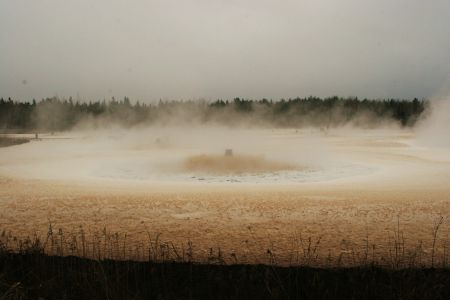K'JIPUKTUK (Halifax) - Checking out the cleanliness of a restaurant is easy in Nova Scotia. Inspection reports and warnings issued by provincial inspectors are all on-line. A similar system is in place for child care facilities.
But if you want to know whether that auto salvage place next door was ever told to clean up its act by a department of environment inspector you are out of luck.
Or that pulp mill next door, for that matter.
A recent report by the East Coast Environmental Law Association (ECELaw) suggests it is time to change that. ECELaw is a non-profit organization that advocates for transparency and more effective environmental legislation in Atlantic Canada.
The report was written by Dalhousie student researchers, ECELaw lawyer Lisa Mitchell, and executive director Jamie Simpson.
The authors of the report, found out at first hand how difficult it is to get information on enforcement from the Nova Scotia department of Environment (NSE). It took months for the province to provide a list of charges made under the Environment Act between 1995 and 2012.
"Environment sent us to [the department of ] Justice, and we had to go through the Freedom of Information process which is cumbersome. And even then the information we received was very sparse," Simpson told the Halifax Media Co-op.
Simpson set out to determine how effective NSE is in ensuring compliance with the law through its inspections, the charges it lays, the convictions it gains and the fines it levies.
Simpson found that charges were few and far between, convictions were relatively rare, and fines most often were so low as to not be a deterrent at all.
"Our hunch is that it could be a lot better, but it is difficult to evaluate how effective NSE's enforcement is with the small amount of information that it makes available," Simpson said.
But for Simpson the real eye-opener was about getting the information.
"After 9 months of information requests, transfers from NSE to the Department of Justice, and receipt of incomplete documents, it is clear that gathering enforcement data from NSE is difficult," the report concluded.
At the end of the project Simpson still was unable to determine the exact circumstances that led to the charges. Or where the infraction ocurred.
Nor was he told about the extent of other measures the NSE inspectors may have taken to make a polluter clean up its act, from informal conversations to formal directives.
The Environment Act, the legislation that underpins most of what the department does, seems to endorse Simpson's vision of openness.
The legislation calls for a public registry that is to contain all the information Simpson is so interested in.
But NSE has never made such transparency a priority.
"We are aware that there are more documents we could put on line, our minister has been very clear that he wants our department to be transparent," Lori Errington, spokesperson for NSE, told the Halifax Media Co-op.
Nonetheless, Errington said that there are no formal plans to put the information Simpson was looking for on-line.
Protection of privacy legislation is the main obstacle, she argues. "If grandma has an oil leak, does she deserve to have her address put in a public access database? We don't believe that privacy legislation would support that."
And the data that is being collected electronically cannot be trusted, she added, because data is not always entered consistently since staff are still getting used to the electronic tracking system.
That system was launched in 2009.
Simpson, who has a law degree, has no difficulty recognizing that privacy laws need to be respected.
"But there is still lots of info that we would like to see in the public domain, things like which parts of the act are contravened, what enforcement action was taken, where these infractions are occurring," Simpson said.
"And so long as privacy isn't contravened, identify which entities are responsible," Simpson added.
"We don't want this to be a witch hunt, but we want to see the bigger picture, see what the trends are, see how NSE enforcement actions and non-prosecution activities are effective and companies are being deterred."
See also:
All reports and directives on Northern Pulp's emissions
Follow Robert Devet on Twitter @DevetRobert



